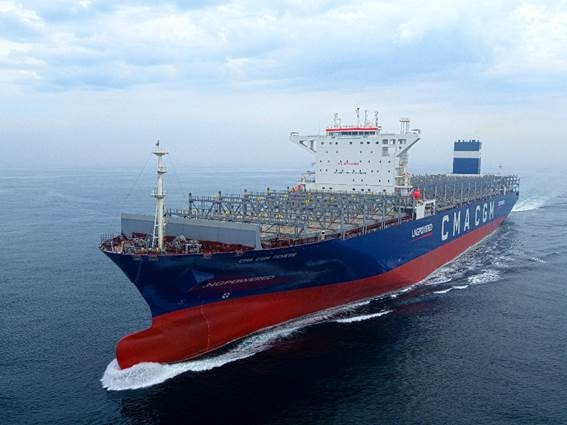M&As
Hyundai-Daewoo shipbuilding merger wins China approval, awaiting EU
Dec 28, 2020 (Gmt+09:00)
3
Min read
Most Read
LG Chem to sell water filter business to Glenwood PE for $692 million


Kyobo Life poised to buy Japan’s SBI Group-owned savings bank


KT&G eyes overseas M&A after rejecting activist fund's offer


StockX in merger talks with Naver’s online reseller Kream


Mirae Asset to be named Korea Post’s core real estate fund operator



China has granted unconditional approval of the world’s largest shipbuilder Hyundai Heavy Industries Group’s acquisition of hometown rival Daewoo Shipbuilding & Marine Engineering Co., a merger deal that is pending approval from the European Union, South Korea and Japan.
After reviewing the planned merger, China’s antitrust regulator, the State Administration for Market Regulation, concluded that the two South Korean shipbuilders’ combination would not restrict competition, Hyundai Heavy said on Dec. 28.
China became the third country to give the nod to the tie-up, after Singapore and Kazakhstan.
Last year, Hyundai Heavy signed an agreement to acquire a 55.7% stake in Daewoo Shipbuilding from the state-run Korea Development Bank for 2 trillion won ($1.8 billion), alongside a pledge to inject 1.5 trillion won into Daewoo to buy the latter’s new shares.
But Hyundai was unable to proceed with the acquisition because it has yet to get the green light from three economies – the European Union, South Korea and Japan – of the six from which it sought approval of the merger.
“We had worried about a possible interference with the deal by China, our archrival in the shipbuilding industry, but we received unconditional approval after proactively addressing competition concerns,” said a source from Korea Shipbuilding & Offshore Engineering Co., a unit of Hyundai Heavy Industries Group. “We expect China’s approval will have a positive influence on decisions to be made by other countries.”
Korea Shipbuilding is a holding company within the Hyundai Heavy Industries Group, recently established to run the group's four shipbuilding units, including Hyundai Heavy Industries and Daewoo Shipbuilding.
Still, the shipbuilding industry is anxiously awaiting the upcoming results of the EU review. This is because most of the two Korean shipbuilders’ clients are based in Europe, including Greece, in addition to the continent's complex and detailed rules relevant to company mergers.
Further, EU approval is highly likely to clear the way for other countries to follow suit.
EU has postponed the scrutiny of the two Korean shipbuilders' combination three times, citing difficulties in conducting onsite studies of their facilities due to the COVID 19 pandemic. EU has not yet given a clear timeline for the review.
In June, the EU executive committee delivered the interim results of its review on the tie-up between Hyundai Heavy and Daewoo Shipbuilding. In the report, it stated that concerns over restricted competition as a result of their merger were resolved for the markets of tankers, container ships and offshore plants, but not in the segment of liquefied natural gas (LNG) carriers.
LNG carriers, valued at around 200 billion won per unit, are highly profitable for shipyards but require sophisticated shipbuilding skills.
“Even a single objection from the foreign countries concerned will have a negative impact on the acquisition. For Hyundai Heavy, it is the most important to have the EU review completed in the nearest future,” said a shipbuilding industry source.
South Korea is home to the world’s three big shipbuilders – Hyundai Heavy, Daewoo Shipbuilding and Samsung Heavy Industries Co.
Over the past two months, the three shipbuilders occupied 70% of the shipbuilding orders placed worldwide, securing a combined $11.3 billion worth of orders for 85 vessels.
By Man-Su Choe
bebop@hankyung.com
Yeonhee Kim edited this article.
More to Read
-
 Mergers & AcquisitionsCJ CheilJedang scraps $3.5 bn green bio sale, shifts gears to expansion
Mergers & AcquisitionsCJ CheilJedang scraps $3.5 bn green bio sale, shifts gears to expansion20 HOURS AGO
-
 Mergers & AcquisitionsCJ CheilJedang scraps sale of Brazilian unit CJ Selecta to Bunge
Mergers & AcquisitionsCJ CheilJedang scraps sale of Brazilian unit CJ Selecta to BungeApr 29, 2025 (Gmt+09:00)
-
 Mergers & AcquisitionsLG Chem to sell water filter business to Glenwood PE for $692 million
Mergers & AcquisitionsLG Chem to sell water filter business to Glenwood PE for $692 millionApr 28, 2025 (Gmt+09:00)
-
 Mergers & AcquisitionsKyobo Life poised to buy Japan’s SBI Group-owned savings bank
Mergers & AcquisitionsKyobo Life poised to buy Japan’s SBI Group-owned savings bankApr 24, 2025 (Gmt+09:00)
-

Comment 0
LOG IN


